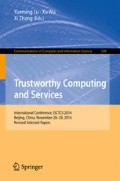Abstract
As a very important research focus of natural language processing, automatic summarization can be used in many fields whether in improving the quality of searching results on a search engine or as a means of public opinion analysis. A method for Uighur automatic summarization is proposed in this paper which is base on sub-theme division and weight value. And by experiments, we find that it can get good precision and recall rates.
Access this chapter
Tax calculation will be finalised at checkout
Purchases are for personal use only
References
Luhn, H.P.: The automatic creation of literature abstracts. IBM J. Res. Dev. 2(2), 159–165 (1958)
Edmundson, H.P.: New methods in automatic extracting. J. ACM 16(2), 264–285 (1969)
Edmundson, H.P., Wyllys, R.E.: Automatic abstracting and indexing-survey and recommendations. Commun. ACM 4(5), 226–234 (1961)
Ran, L.E., Jacobs, P.S., Zemik, U.: Information extracting and text summarizationusing lingusitic knowledge acquisition. Inf. Process. Manage. 25(4), 419–428 (1989)
Jones, K.S., Brigitte, E.N.: Introduction:automatic summarizing. Inf. Process. Manage. 31(5), 625–630 (1995)
Morris, J., Hirst, G.: Lexical Cohesion computed by thesaural relations as an indicator of the structure of text. Comput. Linguist. 17, 21–48 (1991)
Elhadad, M.: Using lexical chains for text summarization. In: Proceedings of the Workshop on Intelligent Scalable Text Summarization, pp. 10−17. Madrid, Spain (1997)
Alam, H., Kumar, A., Nakamura, M.,et a1.: Structured and unstructured document summarization: design of a commercial summarizer using lexical chains. In: The 7th International Conference on Document Analysis and Recognition. pp. 1147−1152. UK, Edinburgh, Scotland (2003)
Gunes, E., Radev, D.R.: LexRank: graph-based centrality as salience in text summarization. J. Artif. Intell. Res. 22(12), 457–479 (2004)
A Jepati Corneille mention, Venera - Mu Shajiang: Research of statistics-based Uighur website Automatic Extraction of summary. Artif. Intell. Recogn. Technol. 7(1), 185–188 (2011)
Acknowledgement
The work in this paper is supported by the National Natural Science Foundation of China project “Research on Basic Theory and Key Technology of Cross Language Social Public Opinion Analysis”(61331013).
Author information
Authors and Affiliations
Corresponding author
Editor information
Editors and Affiliations
Rights and permissions
Copyright information
© 2015 Springer-Verlag Berlin Heidelberg
About this paper
Cite this paper
Yan, X. (2015). A Uighur Automatic Summarization Method Based on Sub-theme Division. In: Yueming, L., Xu, W., Xi, Z. (eds) Trustworthy Computing and Services. ISCTCS 2014. Communications in Computer and Information Science, vol 520. Springer, Berlin, Heidelberg. https://doi.org/10.1007/978-3-662-47401-3_2
Download citation
DOI: https://doi.org/10.1007/978-3-662-47401-3_2
Published:
Publisher Name: Springer, Berlin, Heidelberg
Print ISBN: 978-3-662-47400-6
Online ISBN: 978-3-662-47401-3
eBook Packages: Computer ScienceComputer Science (R0)

